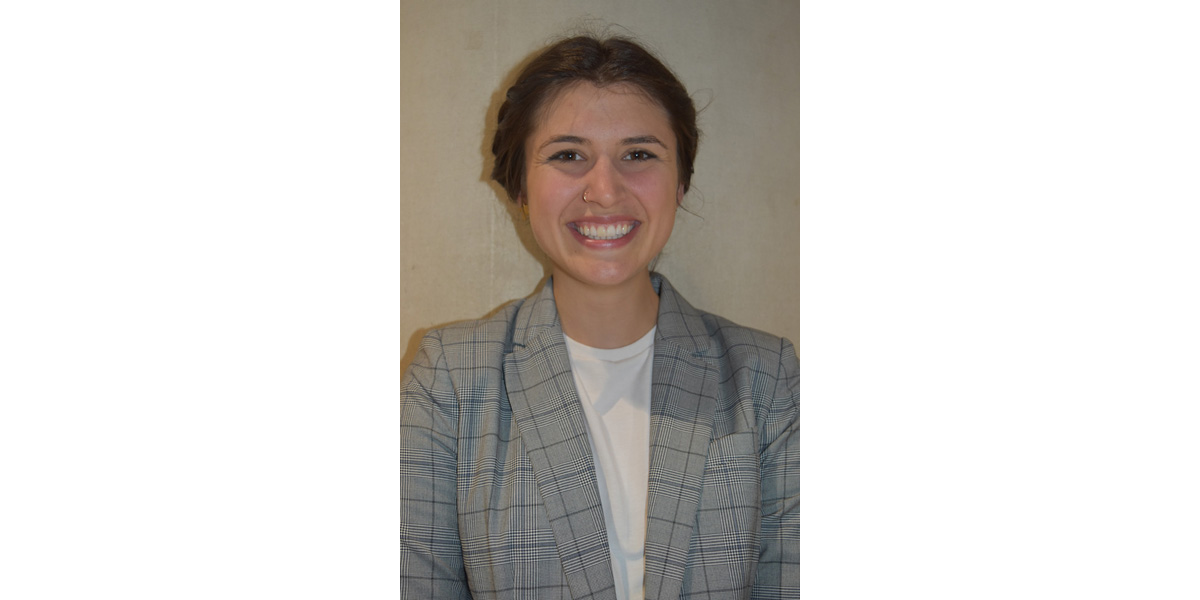K. Hope Woodard is one of the 2019 graduates of the UT BSSW program at the College of Social Work. Hope is joining the Peace Corps this summer with an assignment to Benin, a small country in West Africa between Togo and Nigeria. That is far from Hope’s roots in Tullahoma, Tennessee.
Hope was an honors student at the College of Social Work and received a citation for Extraordinary Professional Promise at the 2019 Chancellor’s Banquet. The UT College of Social Work is proud of the various ways our students give to the university. Hope Woodard served as a Student Alumni Associate while at UT. She spoke at UT’s Big Orange Family Campaign thank you event, greeting the people who had worked on the campaign to set record giving from faculty and staff to UT. In addition, Hope made a presentation in 2018 to the UT Alumni Board of Directors where she spoke about the importance of philanthropy on education.
Now Hope is aiming for a new adventure in service. She will be working with pregnant women assisting with maternal health care in Benin, as well as working on malaria prevention projects. Hope’s interest in joining the Peace Corps grew out of a public health project she participated in while doing student research with Dr. Terri Combs-Orme at East TN Children’s Hospital.
“There is so much I will be learning in West Africa,” stated Hope Woodard when asked what she hoped to learn through this experience. “I haven’t ever been to Africa, so I know the culture will expand my worldview. I am excited to integrate into the community and learn from the experts already doing the work there. Benin is a french speaking country, so I will be in a three month intensive French course at the start of my service. Overall, I will be expanding my cultural competence, language skills, and public health knowledge.”
The reaction of Hope’s family and friends to her plans to enter the Peace Corps have been mixed. “Sometimes people know what the Peace Corps is, while others have never heard of it. My progressive friends with international awareness have been supportive. Also, the people closest to me know that I love women’s health, so they can’t wait to see me go and do this important work, but, sadly, a lot of people have a single story in their heads about Africa. A lot of people don’t quite understand that Africa is more than one country. Moreover, the lack of awareness of African culture creates a lot of fear in some people.” Hope points out that for many, a two-year commitment sounds like a long time and though she thinks that some of her friends may be a bit fearful, most reactions are filled with support and encouragement.
Joining the Peace Corps doesn’t happen quickly or without planning. The Peace Corps has a three round interview process. Applicants have to submit a detailed resume, as well as provide three letters of recommendation. After all of this, volunteers are extended an invitation. When a volunteer accepts this invitation, a legal and medical clearance process begins. The medical process is pretty lengthy, and volunteers don’t always make it through, but, once you are legally and medically cleared, the applicant is officially a Peace Corps volunteer!
Peace Corps service is a life-defining leadership experience. Since 1961, the Peace Corps, an independent US government agency, has shared with the world America’s most precious resource—its people. Volunteers serve in seventy-six countries in Africa, Asia, the Caribbean, Central and South America, Europe, the Pacific Islands, and the Middle East. Peace Corps Volunteers live, learn, and work with a community overseas for twenty-seven months, providing technical assistance in six program areas: Education, Community Economic Development, Youth in Development, Health, Agriculture, and Environment. The Peace Corps continues to promote peace and friendship through the work of young professionals like Hope Woodard.
“I know the UT College of Social Work prepared me so well for this journey,” says Hope. “Because of UTCSW, I understand that the members of the community are their own experts, and I must create sustainable and empowering change. I have always been skeptical of international aid, because I know the “white savior” complex is so common, but the College of Social Work has taught me how to empower communities and individuals. It has taught me the crucial difference between helping and enabling, which is the most important part of our work.” Looking forward to beyond the Peace Corps experience, Hope envisions learning more about public health, and maintaining a social work prospective in this field. She hopes to pursue a masters degree in either public health, social work, or another helping profession. “My career plans are really contingent on the experience I have over these next two years.”
For more information about the Peace Corps Office at UT go to: https://peacecorps.utk.edu
